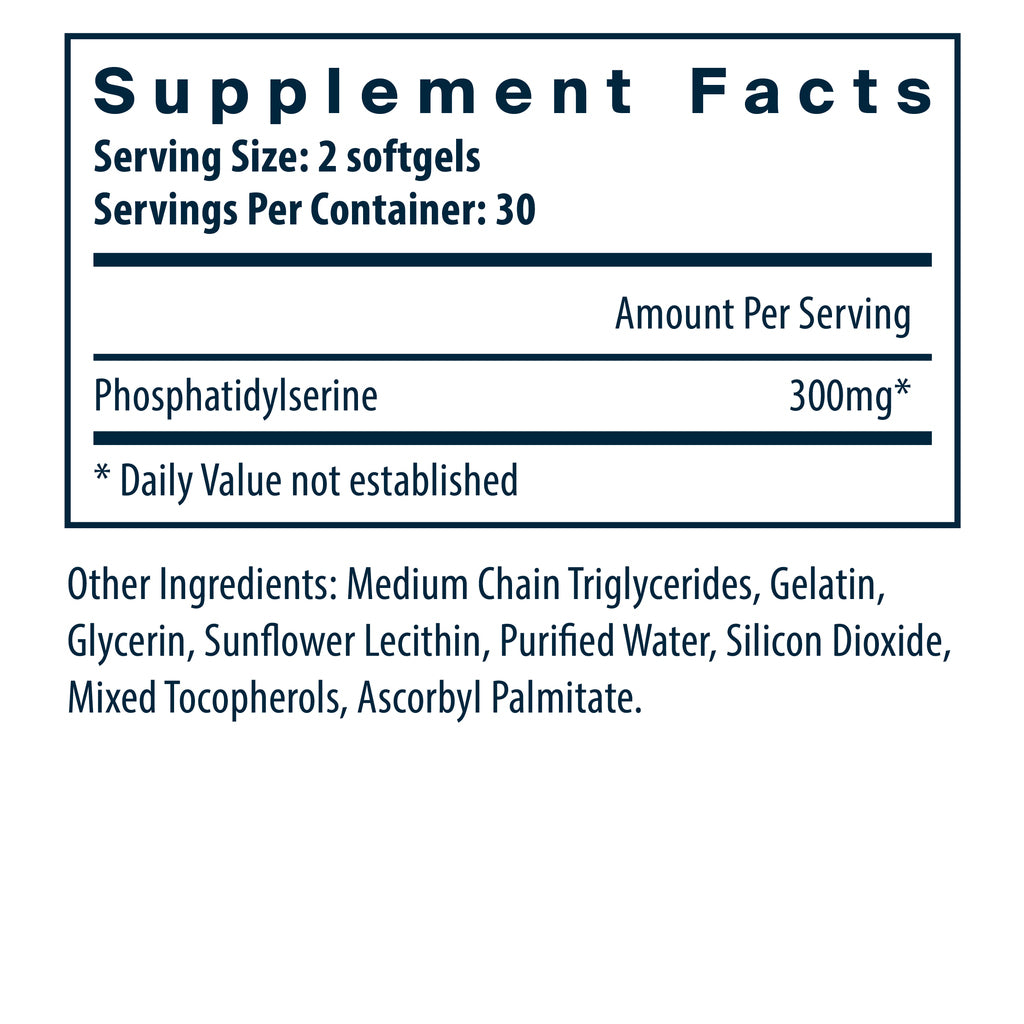Phosphatidylserine Basics
I don't see a lot of articles in the general media about phosphatidylserine (PS). To keep you informed of important concepts, I need to bring this to your attention every couple of years.
What is phosphatidylserine and why should I care?
Phosphatidylserine is a phospholipid and is a key component of the cell membrane and is crucial for proper cell signaling. PS helps the body know which cells are ready to be recycled, that is to remove unhealthy cells to leave the healthy ones.
PS also plays a key role in healthy coagulation or clotting at the site of an injury.
We will focus on the effects of PS and the brain, however. As PS is a key component of the cell membrane, it is especially important in the neuron and its ability to receive and transmit information from one neuron to another. Healthy levels of PS also increase the number of receptor sites on the neuron membrane allowing more messages to be sent and received by that neuron. Think of your cell phone conversation in a zone with a strong signal and a weak signal. You might miss some key words in your conversation if you are getting a weak signal and so would your neurons miss some key information transmission if your PS levels are below optimum.
PS is Brain Protective
PS also helps protect the brain in times of stress. Researchers have noted that in times of chronic stress, the hippocampus tends to shrink and begins to lose function. The hippocampus is particularly involved in emotion regulation and memory formation. PS has been shown to decrease these detrimental changes in the hippocampus thus helping protect your ability to maintain your memory in the face of chronic stresses.
PS can effectively cross the blood brain barrier so can be taken as a supplement to aid in the PS levels of the brain. Studies showing effectiveness used levels of 300-800 mg so that is well within a reasonable range for supplements in capsules, liquids or powders.
Research on PS indicates positive results on general cognitive brain function. The studies have shown that it may help decrease stress responses such as anxiety, depression and as mentioned above, enhance memory and mental focus.
I have talked in other blogs about the importance of glucose management in the brain and how dementia will almost always have a correlation with problems with glucose and some have termed Alzheimer's Disease Type III Diabetes.
PS Can Help Lower Cortisol
Most notable are studies that show that phosphatidylserine (PS) can actually lower cortisol. Chronically elevated cortisol and result in increased blood sugar helping to contribute to Type II and Type III Diabetes. Chronically elevated cortisol can also contribute to weight gain or difficulties losing weight. Is also can affect sleep patterns or difficulty falling asleep. People with cortisol issues from stress have found a nice weight reduction with just the addition of PS.
Phosphatidylserine may not be the miracle nutrient for stress but this form of it certainly comes close!
Look at Vital Nutrients Phosphatidylserine 150 mg 60sg. You can start with one soft gel per day and work up to two or three looking for changes in your stress response, sleep patterns and even blood sugar lab levels.




